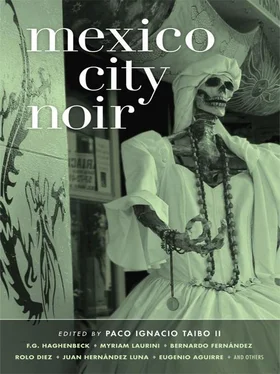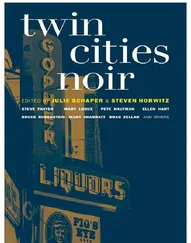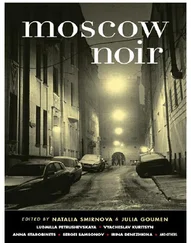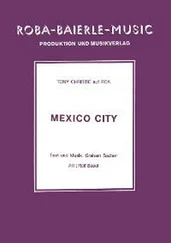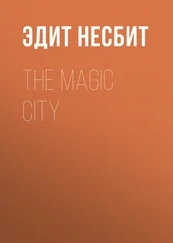“If I could fuck with two of these gangs of car thieves, I could take down half the damn robbery pins, easy, and maybe some of the assault ones, because when they don’t have cars to steal, that’s what they do, and maybe even some of the yellow pins too, because half the time they’re fighting each other,” Manterola said in a low voice to the head of the Ezcurdia squad, who stared at him with no love lost, since one of those gangs gave him a cut so that he’d always make himself scarce.
“If you fuck with one gang, I’ll tell the other to go steal someplace else, to go rip off cars in Toluca for a month,” the squad leader said in response. “I don’t want any problems with the head of government.”
“Let’s have a festival on that corner, a cultural festival,” José
Daniel suggested to the head of government. “Do you want some meat, my royal sir?”
“If I want meat, I’ll go to the supermarket, pendeja,” Manterola said to a transvestite, whose real name was undoubtedly something like Manolo-or Luis Jorge or Samuel Eduardo, because now, thanks to those fucking Venezuelan telenovelas, it had become fashionable to give babies two names. The guy didn’t actually look too bad: nice legs, even nicer ass, and no question that if he’d run into him in the dark, he’d have given him a whirl.
Manterola knew all too well that more than one of his colleagues liked to be with queens, but always with their macho thing of who-fucked-who. If you did the fucking, you weren’t the fag in the picture. The puto was the other guy. Lord have mercy, what assholes his colleagues could be. Like the dude who said he was disgusted by the whole thing but that his body “asked for it” sometimes.
It was getting dark. To get rid of the faggot, Manterola just ignored him and leaned up against a lamppost at the corner of Doctor Erasmo and Doctor Monteverde, right in front of a grocery store called La Flor de Gijón which shone its neon through a swarm of flies. He watched the movements inside for a while: maids buying bread, two kids who went in for soda carrying a huge plastic bag. An s.o.b. with the face of an s.o.b. buying cigarettes. Some dude, Cuban or coastal-impossible to tell the difference in the dark-mouthing a cumbia and lazily picking up a six-pack of beer. The old man at the register looked like he’d opened the store after being left back from Cortés’s first expedition. Having absorbed all of this, Manterola entered.
“Good evening.”
“Fuck, that’s the first time in my life a cop has greeted me with a good evening ,” said the old man-pale like a Spaniard-with a toothless smile.
“How many times have you been robbed?”
“None so far,” replied the old man, with an expression that made it clear he expected nothing good to come from a police visit.
“Even though you’re on the most dangerous corner in all of Mexico City,” said Manterola.
“What do you mean?”
“You’re gonna gimme that story too?”
“Who else told you that?”
“A writer.”
There’s going to be a cultural event of some sort on your corner. It’s a kind of party, a festival, but sponsored by the government. You have to speak with a man whose last name is Mechupas, said the note scribbled on the Post-it on his desk. Manterola put his hands on his head and discovered his hair was wet with sweat. He’d never heard of such a thing.
He put his files in order, with the one for Fermín Huerta on top. That was the guy, El Mandarín. That was his Saint Peter at the gates of heaven. But what the fuck was this about a party?
Mechupas was obviously the writer José Daniel Fierro.
“Well, my esteemed officer, if you don’t like it, you can call Mexico City’s head of government yourself,” he said, offering a worn business card. “Here’s his number.”
Manterola eyed the Boss of Bosses’ business card and read the message on it: This is the information we discussed .
Later, he checked in again on the novelist. He was a big guy, with a mustache like Pancho Villa; it was probably best to just be straight with him.
José Daniel, who knew a lot about shady characters, saw the doubt in the cop’s small eyes right away. Let’s see if this guy learns to respect those of us who don’t wear ties, he said to himself.
Let’s see if I can learn to respect people who don’t wear ties, Manterola said to himself at that same moment, even if they’re a bunch of lazy pendejos .
“So?”
“We’re going to have a festival, and you’re not going to arrest anybody, nor raid anything, nor insult anybody, nor shoot anybody, nor bother anybody, nor fuck with anybody on that corner, which I understand is under your jurisdiction.”
“Señor Fierro, we have a very important investigation underway,” Manterola said ceremoniously.
“Well, you can shove it up your ass,” said Fierro, who wasn’t much liked by the state police anyway, and who was seeing red because Manterola had come into his life asking what the fuck he was thinking throwing a party on his corner.
“So what is my role here then?”
“Work with me. And if you have any questions, call the head of government, or your boss, or the Boss of Bosses,” said Fierro while lighting a delicate filtered cigarette and smiling.
Manterola surrendered for the moment. “What do you want me to do?”
“Help me find El Mandarín,” said Fierro, who’d done his homework.
He was called El Mandarín, not just because he was Chinese but also because he had dyed a red streak in his hair that made him look like a peeled mandarin orange. Manterola knew he wasn’t a car thief; the guy was a middle manager in the acquisitions department of a large and growing enterprise that included various parking lots, a half dozen garages, about a hundred employees, an office with multiple bookkeepers, connections with public officials in three different states who supplied fake papers, a customs chief in Veracruz and another in Coatzacoalcos, and even space on various marine freighters. What he did wasn’t even a crime-a crime is stealing from old women, beating up your wife, kicking a baby-this was business. El Mandarín knew that if all the cars stolen in one year in the Valley of Mexico were lined up, they would reach Cuernavaca, more than seventy kilometers away. That was why it was great business.
El Mandarín was eighteen years old, the senior member of his gang, which was an immense responsibility, so he didn’t steal cars on Tuesdays or Thursdays because he was too busy studying Russian. He’d heard a few things: that Volkswagens sold well in North Africa because they were air-cooled instead of water-cooled; that small trucks did well in Guatemala; and that Dodge was all the rage in Eastern Europe, where everybody spoke Russian.
Manterola and José Daniel found him at the entrance to his high school and he made no move to run. It would have been different in his own neighborhood, but he had no idea where he could run around here.
“I guess I’m fucked,” he said, and resigned himself to a simple smile.
You only go back at night when you want something. I return to the dark so that it’ll keep me from the day’s perverse routines, from the failures of love. José Daniel Fierro was writing on his keyboard when the doorbell got stuck. He bitched all the way to the door because one of his legs had fallen asleep. It was 4 in the morning.
Manterola measured him with a killer gaze.
“You want to have a charanga or a chimichurri or a chimiganga or whatever the fuck you call it-a masked ball on that corner? That’s all we need-you let them wear masks while they rob us, you give all those assholes an excuse to dress up as wrestlers so they can fuck with us.”
Читать дальше
